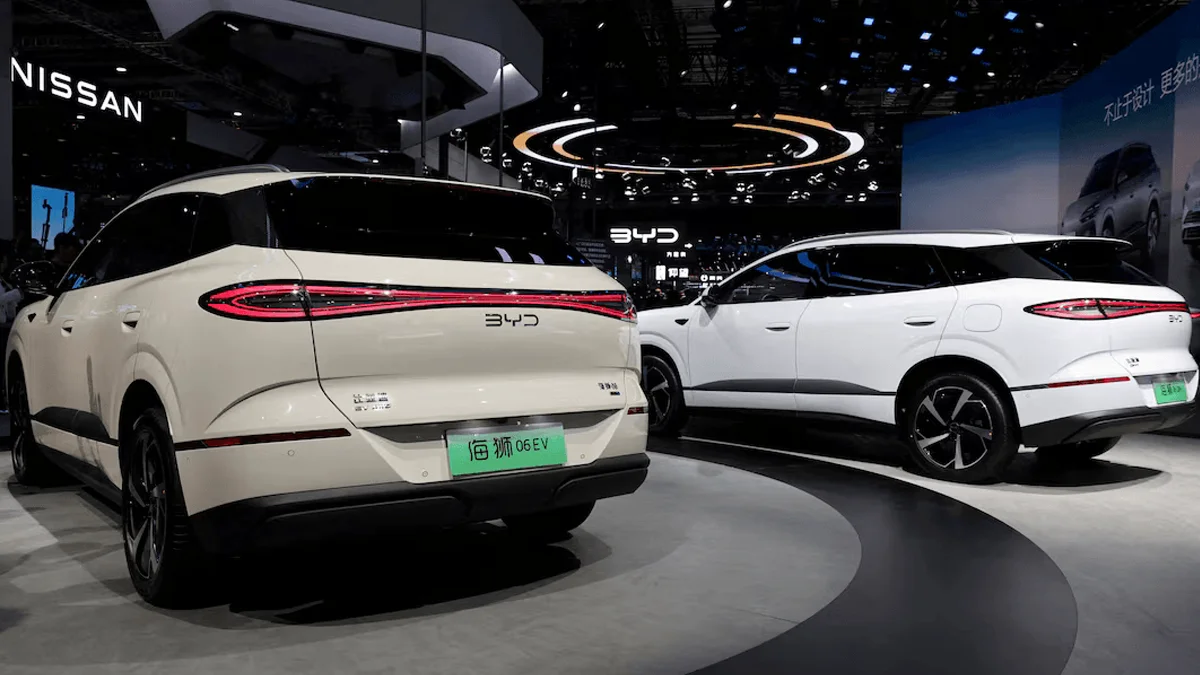Necessary Always Active
Necessary cookies are required to enable the basic features of this site, such as providing secure log-in or adjusting your consent preferences. These cookies do not store any personally identifiable data.
|
||||||
|
||||||
|
||||||
|

Tesla, the EV maker owned by Elon Musk, outperformed Chinese rivals in assisted driving technologies according to Yahoo Finance. Tesla scored better than Xiaomi, BYD, and Huawei in tests conducted on highways and urban areas in China.
China’s driver assistance test results were published by Dcar, an auto unit within TikTok’s parent company, Bytedance. Performance was rated based on a range of high-risk scenarios including urban areas and highways.
Out of the 36 EV brands participating in the level 2 ADAS system test, Tesla came out on top with its Model X and Model 3 excelling in five out of the six test scenarios. Level 2 ADAS systems are currently not fully autonomous. Musk announced that Tesla had topped the driver assistance test on social media.
Tesla CEO Elon Musk posted on X, “Due to laws against data export, Tesla achieved the top results in China despite having no local training data.”
The SU7 model developed by Xiaomi passed one out of the six scenarios, while Huawei-supported Aito M9 tied with BYD’s Denza Z9GT after passing three scenarios. Chinese state media CCTV collaborated with Dcar to conduct tests of level 2 advanced driving assistance systems developed by over 20 EV companies in China. Chinese social media platforms were flooded with videos of the test posted by Dcar.
Tesla has faced challenges in the Chinese market and has been seeking the approval of regulators in China to transfer data from its Shanghai plant to the US for AI training. Earlier this month, the Deputy Chief Engineer at China Association of Automobile Manufacturers challenged local EV companies to strive towards bridging the gap with Tesla’s autonomous driving technology.
Speaking soon after Tesla sent a driverless Model Y Tesla from an Austin factory to its owner 30 minutes away, Xiaomi CEO Lei Jun said his company would continue to learn from the US EV maker as it leads the industry.
Tesla scored best in the highway test at a time when concerns about assisted driving autonomous systems are rising in China following a highway accident. The accident, in which three people died, occurred in March 2025 and involved a Xiaomi SU7.
China’s state media claimed misleading ads led to improper use of driverless technologies. The media also announced that authorities had banned the use of terms such as ‘autonomous driving’ and ‘smart driving’ to market driving assistance features to avoid misleading consumers who may confuse ADAS with true autonomy.
Last week, the Chinese Security Ministry announced legal responsibilities associated with technologies that are yet to achieve autonomous driving status. The ministry warned that drivers would face legal and safety risks if they are involved in accidents when their vehicles were in assisted driving mode.
Tesla recorded a 0.8% increase in Chinese sales in June 2025. Its assisted driving software is currently available in the Asian country at a cost of $9,000. The company’s top competitors like BYD and Xiaomi do not charge for their driving technologies, an aspect that is pressuring Tesla to rethink its self-driving future.
Early this year, BYD amplified the EV price war after it announced that it would provide advanced driver-assistance features without any extra charges in its new electric vehicle models. Following the March accident, Xiaomi has experienced a dip in new orders as customers lashed back in April. However, the impact appears to have been short-term. The company’s latest electric SUV model, YU7, recorded about 24,000 orders after it was launched last month.